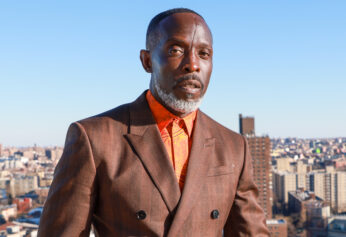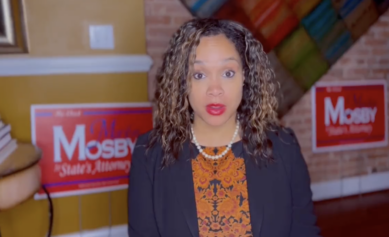
“Mosby said she was concerned that the defense attorneys would leak only evidence that supported their clients’ defense, jeopardizing the ability to conduct a fair trial,” said The Baltimore Sun.
Mosby is prosecuting six Baltimore police officers for the death of Freddie Gray, whose spine was severed while in police custody. The Sun reported the officers are facing charges ranging from misconduct in office to second-degree murder. The case is expected to go to trial in October.
Gray’s death sparked violent protests and clashes with the police, which led to a city-wide curfew. Order was only restored when Maryland Gov. Larry Hogan called out the National Guard.
However, Judge Williams said he was confident defense attorneys would keep court information confidential.
“The court notes that discovery was turned over on June 26, 2015, and as of this date, the court is not aware of the dissemination of any discovery information by defendants,” Williams wrote. “The only discovery item that has become public as of this date has been information from the autopsy report, and at the time of the alleged disclosure, the report had not been turned over to defendants.”
Responding to the judge’s ruling, Mosby said she wanted to make sure the case was decided in the court of law, not the court of public opinion.
“We will litigate this case in the courtroom, not the media,” said Mosby spokesman Rochelle Ritchie in an email.
The Baltimore riots brought light to many of the problems plaguing drug-infested, Black neighborhoods. Many of these issues were also addressed in the critically-acclaimed HBO show “The Wire.” “The Wire” has been praised by President Barack Obama, who has called on HBO to bring it back. He was particularly impressed by the way the show tackled issues such as the drug trade, addiction and the social effects of mass incarceration.
The Guardian reported several cast members returned to Baltimore on Monday to read poetry written by people from Penn North, Freddie Gray’s neighborhood. Actress Sandra Sohn said performing the readings was a way of giving a voice to people who often went unheard.
“We know how [storytelling] heals and radiates outward and what it inspires in other people,” Sohn said. “We’re going to give a platform to these folks who felt they were not being heard.”
“The Wire” was created by David Simon, who based the show on his experiences working as a police reporter in Baltimore where he observed the intersection of drugs, crumbling neighborhoods and city politics. According to The Guardian, one of the show’s characters, Tommy Garcetti, was based on former Baltimore mayor and Maryland governor, Martin O’Malley, who is now a candidate for president.
O’Malley was not a fan of the show. He felt “The Wire” focused too heavily on the negative aspects of Baltimore.
“After the first season aired, Simon said he received an angry phone call from O’Malley, then mayor of Baltimore, who raised concerns about how his city was being shown and threatened to block the filming of Season 2. O’Malley has challenged anyone who calls him an inspiration for the show, saying on MSNBC in 2009, “I’m the antidote to ‘The Wire.’ Even now, years after the series ended in 2008, aides and staffers know not to mention it around him,” said The Washington Post.
Simon has also been very critical of the War on Drugs and said it has damaged relations between the police and the Black community.
“In these drug-saturated neighborhoods, they weren’t policing their post anymore,” he said. “But no, they were just dragging the sidewalks, hunting stats, and these inner-city neighborhoods – which were indeed drug-saturated because that’s the only industry left – become (sic) just hunting grounds. They weren’t protecting anything. They weren’t serving anyone.”


